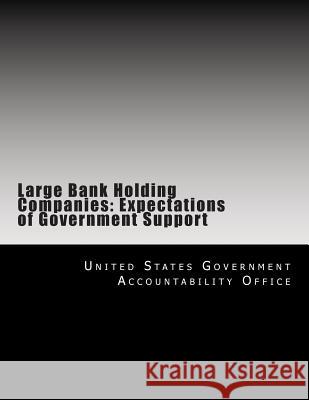Large Bank Holding Companies: Expectations of Government Support » książka
Large Bank Holding Companies: Expectations of Government Support
ISBN-13: 9781500711085 / Angielski / Miękka / 2014 / 96 str.
"Too big to fail" is a market notion that the federal government would intervene to prevent the failure of a large, complex financial institution to avoid destabilizing the financial sector and the economy. Expectations of government rescues can distort investor incentives to properly price the risks of firms they view as too big to fail, potentially giving rise to funding and other advantages for these firms. GAO was asked to review the benefits that the largest bank holding companies (those with more than $500 billion in assets) have received from perceived government support. This is the second of two GAO reports on government support for bank holding companies. The first study focused on actual government support during the 2007-2009 financial crisis and recent statutory and regulatory changes related to government support for these firms. This report examines how financial reforms have altered market expectations of government rescues and the existence or size of funding advantages the largest bank holding companies may have received due to perceived government support. GAO reviewed relevant statutes and rules and interviewed regulators, rating agencies, investment firms, and corporate customers of banks. GAO also reviewed relevant studies and interviewed authors of these studies. Finally, GAO conducted quantitative analyses to assess potential "too-big-to-fail" funding cost advantages.
Zawartość książki może nie spełniać oczekiwań – reklamacje nie obejmują treści, która mogła nie być redakcyjnie ani merytorycznie opracowana.











